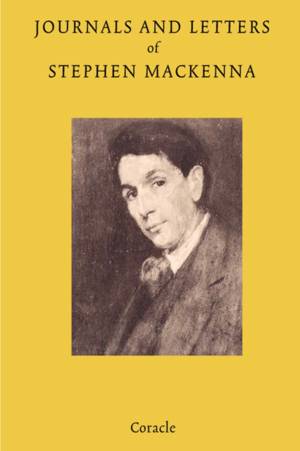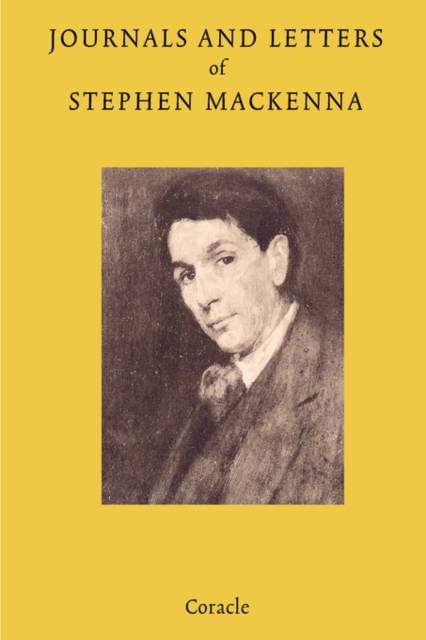
- Retrait gratuit dans votre magasin Club
- 7.000.000 titres dans notre catalogue
- Payer en toute sécurité
- Toujours un magasin près de chez vous
- Retrait gratuit dans votre magasin Club
- 7.000.0000 titres dans notre catalogue
- Payer en toute sécurité
- Toujours un magasin près de chez vous
20,95 €
+ 41 points
Description
Coracle Press is pleased to make available this new printing of the journal and letters of Stephen Mackenna (1872-1934), a vivid and representative thinker whose life intersected with many of the leading figures of his day, and especially those of the Irish literary renaissance. The editor, E. R. Dodds, writes: Stephen MacKenna's working life was divided among three countries, and was further broken by two complete changes of occupation and by continual changes of residence. When he died, he left behind him no wife, child or lifelong friend; . . . and with the exception of the 1907-9 Journal no papers of any considerable biographical value. He left instead a legend. In the Memoir which follows I have endeavored to recover and present the facts underlying the legend. Best known for what Æ (George William Russell) called his 'noble translation of Plotinus', MacKenna nonetheless harbored views that collided with those of Plotinus, and so speaks to us as an authentic forerunner of the 'modern' human being, by which is meant those who, once their individual inner light is lit-and no matter how it may gutter in the wind of uncertain freedoms-must, even while hallowing earlier and magisterial records of paths of spiritual ascent, accept the need for a complete 'descent' (without which the whole engine of creation will have had no final purpose), with all the provisional darkness this may entail, so that the final ascent may be made in personal love and freedom. This is what MacKenna writes in a letter toward the end of his life: One more serious word . . . my conscience won't allow me to pass as a Plotinian: I loved the work . . . but I was never convinced by the philosophy or the ethic of it: I'm a secularist agnostic: I don't know anything about the Soul or the Divine or Immortality or anything of that order, and I do believe in this life: I hate those who hate the world: had I children I'd try to lead them to love beauty, nobility, even what I vaguely call Spirituality; but I'd want them to get and give all the good of the world, and the honourable or not dishonourable pleasure of it-of course I'd want them to think and work out what is the real pleasure, what is the false, deceptive-but to them, to themselves, not by any law of Moses or Plotinus or Daddy Stephen MacKenna. Plotinus and all the Mystics and Gospels of all the creeds are to my mind valuable as corrective, as poetry, as suggestion, as windows opening on to vistas of the possible: as law, as dogma, wicked.
Spécifications
Parties prenantes
- Auteur(s) :
- Editeur:
Contenu
- Nombre de pages :
- 356
- Langue:
- Anglais
Caractéristiques
- EAN:
- 9781597313186
- Date de parution :
- 15-11-07
- Format:
- Livre broché
- Format numérique:
- Trade paperback (VS)
- Dimensions :
- 152 mm x 229 mm
- Poids :
- 521 g

Les avis
Nous publions uniquement les avis qui respectent les conditions requises. Consultez nos conditions pour les avis.






